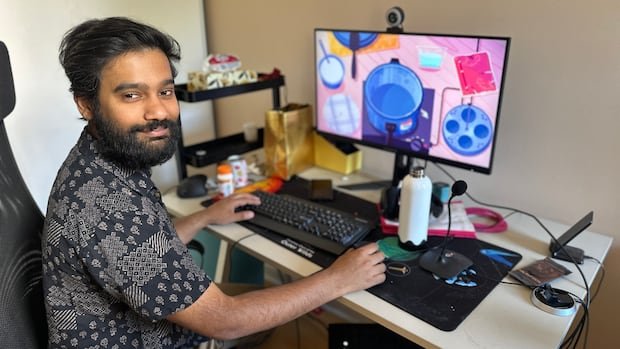Upon discovering the mobile cooking game Sofra, Abhi Swaminathan’s initial reaction was amusement. He noticed striking similarities between Sofra and his own narrative cooking game, Venba, albeit with some significant differences. Swaminathan, the founder and director of Visai Games based in Toronto, released Venba in 2023. In Venba, players embody an Indian mother who moves to Canada in the 1980s. As they recreate Tamil cuisine, they unravel the story of the family at the game’s core, centered around themes of love, family, and loss.
Conversely, Sofra, a cooking simulation game launched this year, focuses solely on culinary activities like preparing peanut butter and jelly sandwiches or pancakes, devoid of any narrative aspects.

In late June, Visai Games took to social media to accuse Sofra of being a “rip-off” that omitted themes like “dealing with racism.” This sparked reactions from disappointed Venba fans and discussions on video game blogs highlighting the visual similarities between the two games.
Despite the controversy, Swaminathan opted not to pursue legal action, citing the common practice of game features being borrowed by other creators and the complexities of legal action against the European-based companies responsible for Sofra.
Refuting any allegations of theft, Sofra creator Alex Baboglo, based in Moldova and CEO of Global Advertising Network Ltd. and WorkPoint, stated that Sofra was developed by three teenagers within an internal game development program. Baboglo emphasized that while inspired by other games, all content in Sofra was independently crafted by their in-house designers.
Legal expert Jay Kerr-Wilson from Fasken, specializing in copyright law, explained that imitating the “look and feel” of a video game is not legally protected, unless specific creative elements are copied. He noted the rarity of litigations in such cases in Canada due to the intricate and costly nature of cross-border legal actions.
Acknowledging the prevalence of game creators drawing inspiration from each other, Swaminathan expressed that while some instances may stem from financial motives, many borrowings contribute positively to the industry’s evolution. Similarly, game design professor Kris Alexander from Toronto Metropolitan University highlighted the common occurrence of similar elements appearing in different games, sometimes as a tribute to beloved predecessors.
While some instances of game similarities result in accusations of plagiarism or legal disputes, such as Sony’s recent lawsuit against Tencent for alleged cloning of its Horizon series, distinguishing between homage and profit-driven imitation can be challenging, as Alexander pointed out.
Tag: rewrite-pending

